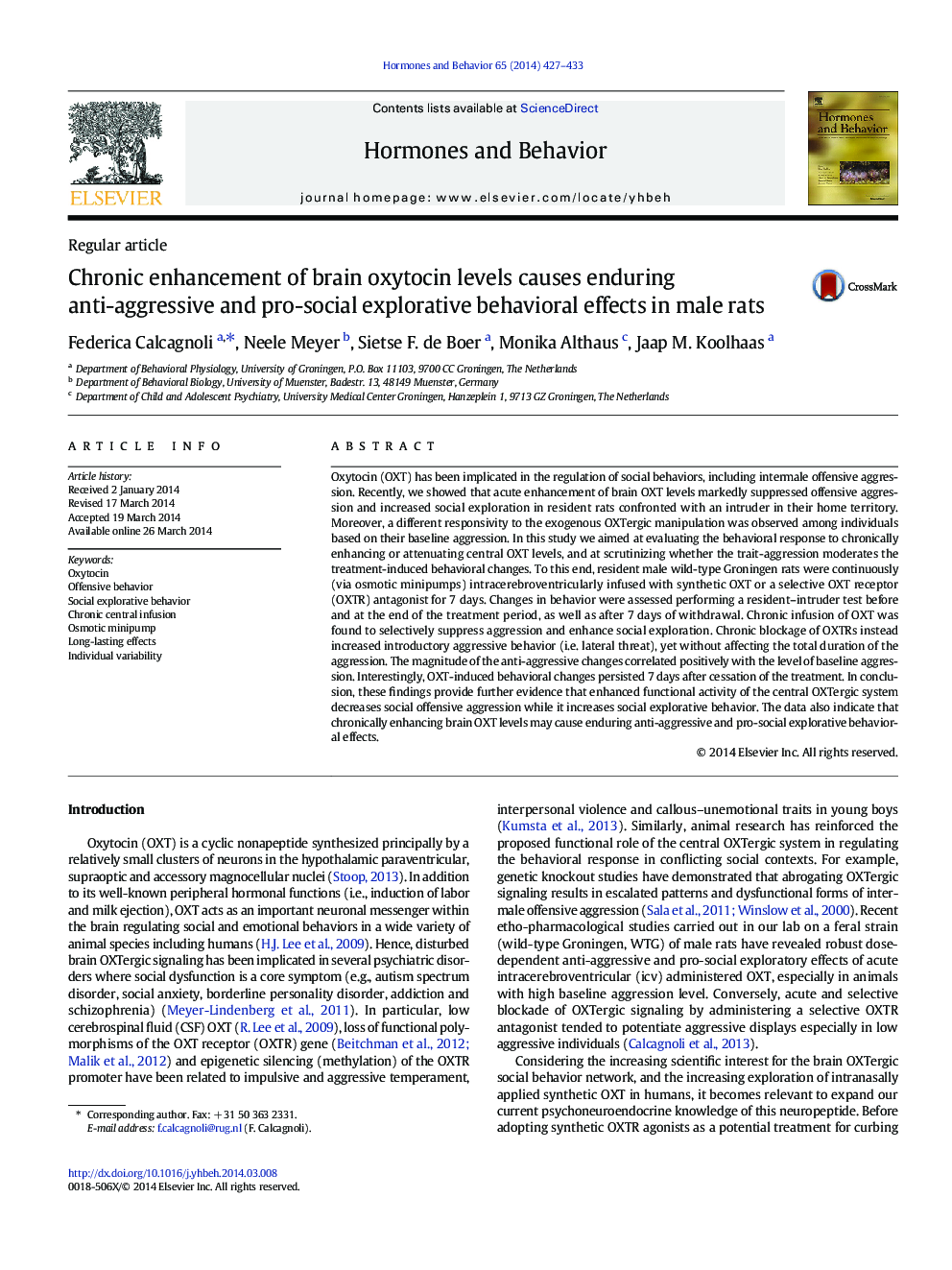| کد مقاله | کد نشریه | سال انتشار | مقاله انگلیسی | نسخه تمام متن |
|---|---|---|---|---|
| 323423 | 540651 | 2014 | 7 صفحه PDF | دانلود رایگان |
• Chronic enhancing OXT level has anti-aggressive and pro-social explorative effects.
• Chronic OXTR antagonist increases introductory aggressive behavior.
• The magnitude of OXT-induced behavioral changes is dependent upon baseline aggression.
• OXT-induced behavioral changes persist 7 days after cessation of the chronic treatment.
Oxytocin (OXT) has been implicated in the regulation of social behaviors, including intermale offensive aggression. Recently, we showed that acute enhancement of brain OXT levels markedly suppressed offensive aggression and increased social exploration in resident rats confronted with an intruder in their home territory. Moreover, a different responsivity to the exogenous OXTergic manipulation was observed among individuals based on their baseline aggression. In this study we aimed at evaluating the behavioral response to chronically enhancing or attenuating central OXT levels, and at scrutinizing whether the trait-aggression moderates the treatment-induced behavioral changes. To this end, resident male wild-type Groningen rats were continuously (via osmotic minipumps) intracerebroventricularly infused with synthetic OXT or a selective OXT receptor (OXTR) antagonist for 7 days. Changes in behavior were assessed performing a resident–intruder test before and at the end of the treatment period, as well as after 7 days of withdrawal. Chronic infusion of OXT was found to selectively suppress aggression and enhance social exploration. Chronic blockage of OXTRs instead increased introductory aggressive behavior (i.e. lateral threat), yet without affecting the total duration of the aggression. The magnitude of the anti-aggressive changes correlated positively with the level of baseline aggression. Interestingly, OXT-induced behavioral changes persisted 7 days after cessation of the treatment. In conclusion, these findings provide further evidence that enhanced functional activity of the central OXTergic system decreases social offensive aggression while it increases social explorative behavior. The data also indicate that chronically enhancing brain OXT levels may cause enduring anti-aggressive and pro-social explorative behavioral effects.
Journal: Hormones and Behavior - Volume 65, Issue 4, April 2014, Pages 427–433
